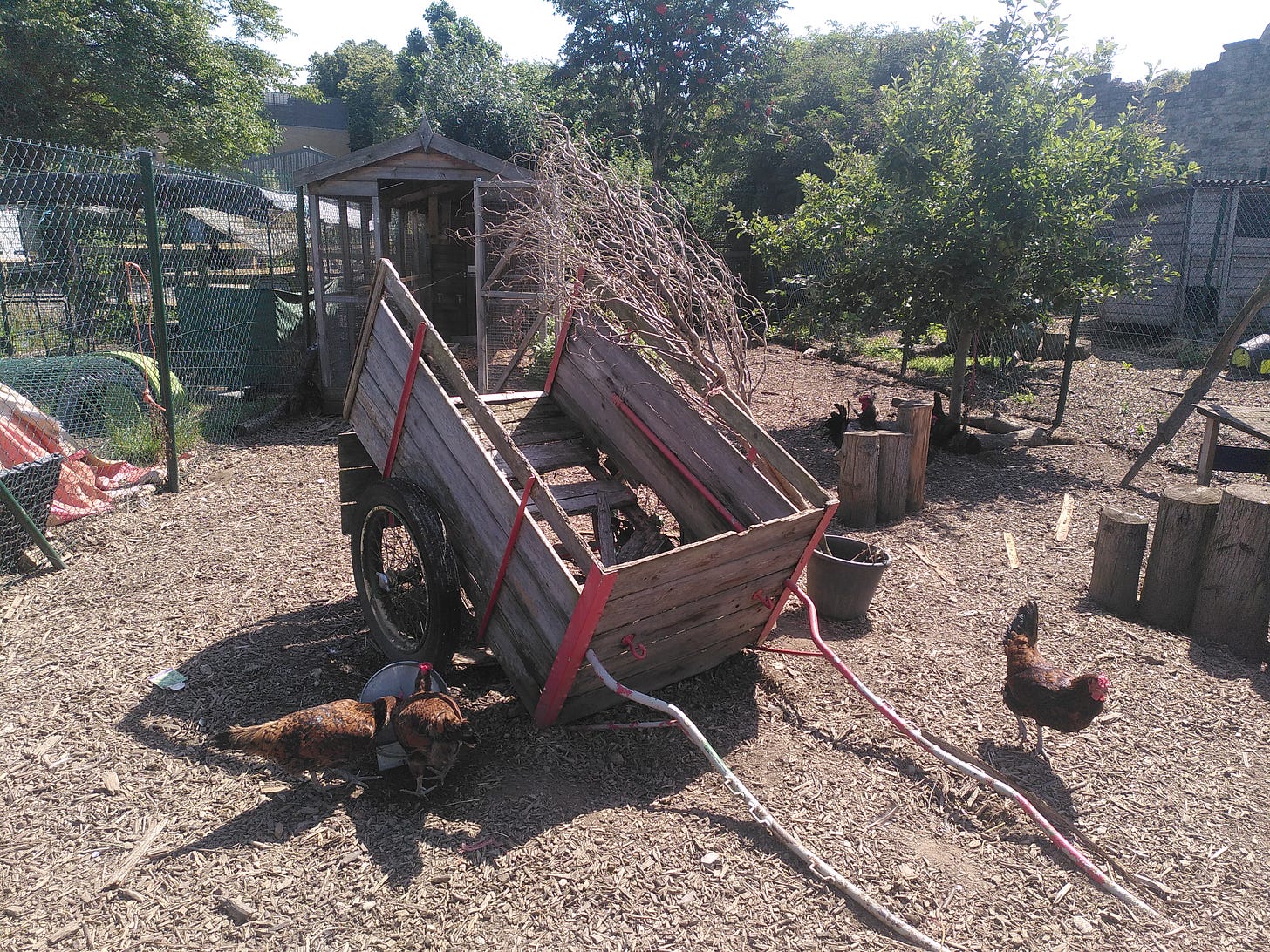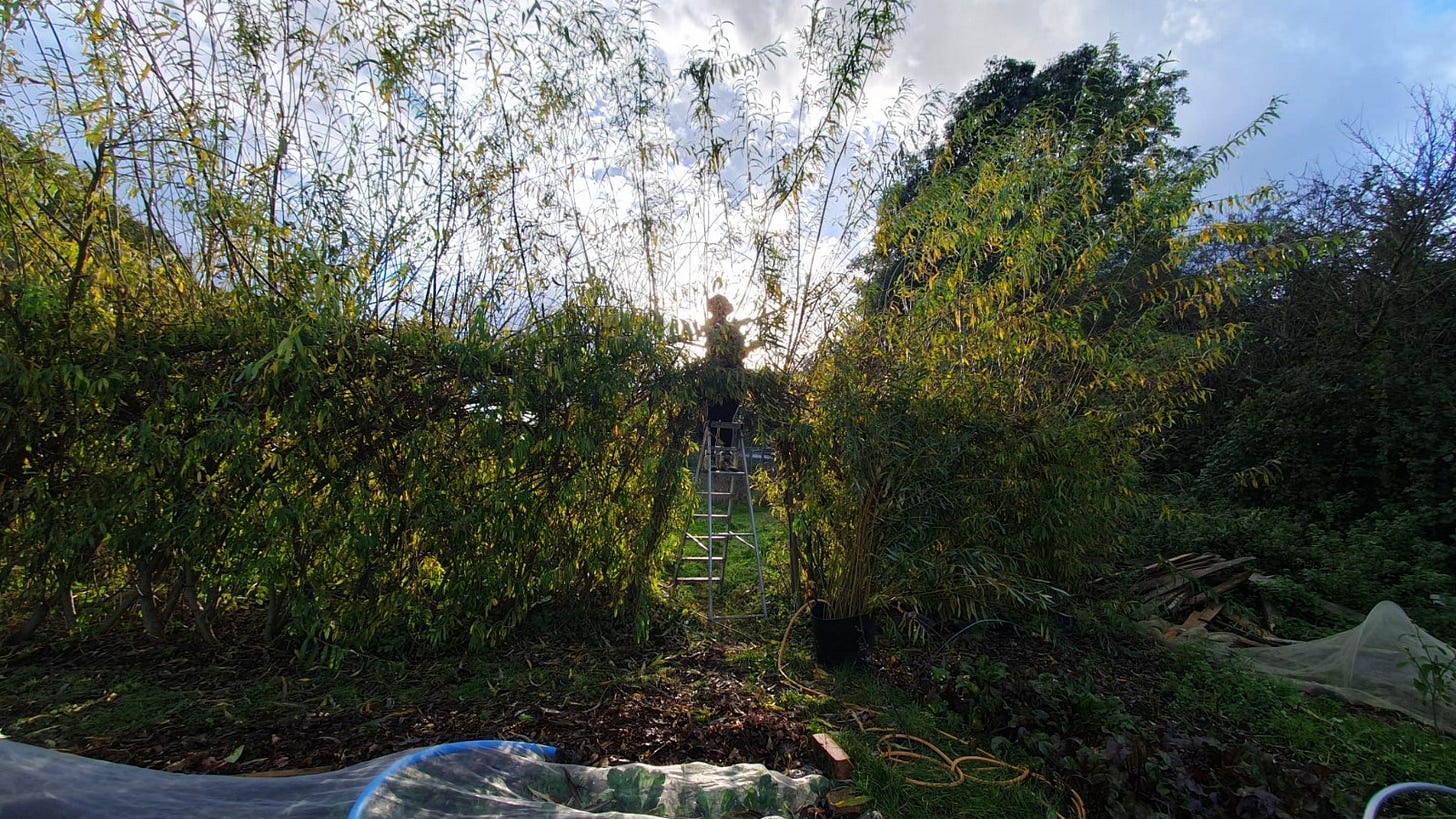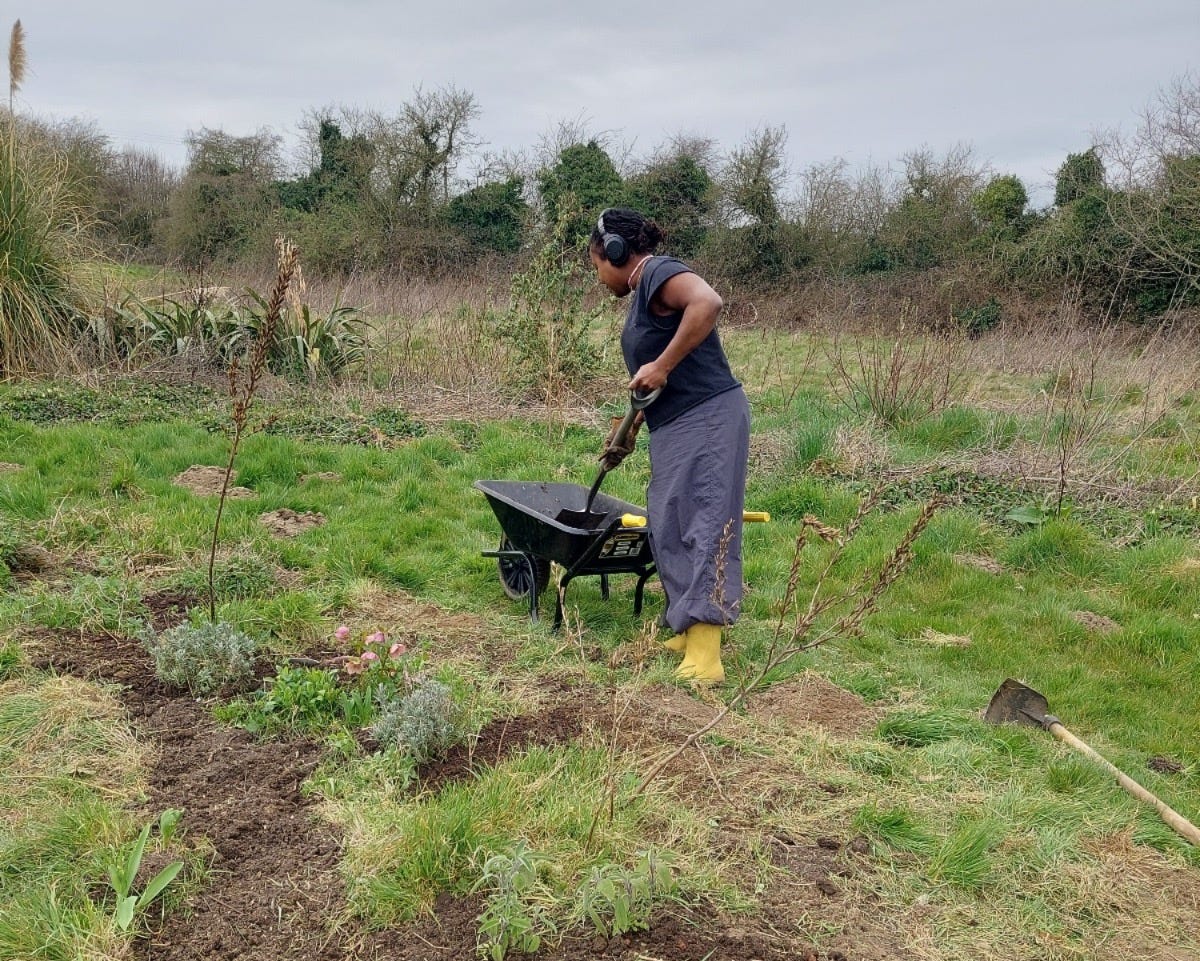We need more Black farmers to help tackle the UK food crisis
Agriculture is still the least ethnically diverse job sector in the country. We speak to BPOC farmers about the changing face of the industry.
The cost of living is on the rise, the use of food banks is increasing, and the pandemic highlighted that people across the country are struggling to feed themselves nutritious food. While there are multiple reasons for this multifaceted crisis, going back to the root – to the farmers who are growing our food – will be critical for food security and environmental solutions.
And as the farmer age gap grows larger – the average age of a farmer in the UK at 59 – threatening food security even more, it is time to welcome a new cohort of farmers and growers with fresh ideas and perspectives into an industry that is steeped in tradition.
According to the 2025 Broken Plate report, “To afford the government recommended healthy diet, the most deprived fifth of the population would need to spend 45 per cent of their disposable income on food, rising to 70 per cent for those households with children.”
Finding a new generation of farmers and growers with a diversity of thought means championing a diverse, often non-traditional workforce. Yet, agriculture, forestry and fishing are still the least ethnically diverse job sectors in the UK.
There is a growing number of Black people and people of colour [BPOC] who are farming and growing food, while simultaneously shifting perspectives in the agricultural industry and highlighting the importance of food sovereignty. But why is it still such a challenge to permeate this sector – and what is being done to support BPOC farmers in the UK?
Accessing land
The barriers to farming are nuanced and varied. But in order to farm, you first need access to land.
Only 1 per cent of the population owns 50 per cent of the land in England, and this is mostly held by the aristocracy and gentry, who still own around 30 per cent of England. On top of that, farming has historically been generational, with agricultural land being passed down through families. So for those who are first, second, or third generation immigrants, knowing how to traverse the world of landownership can prove an uphill battle.

“In an ideal more egalitarian vision of farming in the UK, no one would own land and everyone would be stewards of the commons.”
“BPOC farmers in the UK may not have familial ties to land ownership here; they may not have inbuilt connections with farmers who have been farming here for generations,” Jo Kamal, a commercial food grower, political organiser and one of the project partners for Pathways to Land, tells The Lead.
Not everyone wants to own land, or has the financial backing to buy land individually, making alternative ways to access space to grow important. Land stewardship is the concept of caring for and conserving land regardless of ties to ownership.
“A massive common theme in our research and the amazing research done before us is that many of the barriers BPOC farmers face in setting up their own food growing businesses can be combated through collective land stewardship and collective governance – 90% of our interviewees highlighted this and we think that's crucial,” adds Jo.
In 2024, the highest proportion of farmers (38 per cent) were aged 65 and over, and now some farmers are retiring without family to succeed them. Land trusts (which keep the land for its original purpose) are becoming more important for farmland succession and can offer an alternative to accessing space to grow.
Rae Hippolyte, a food grower and outdoor educator, initially got into farming through cooking food and youth work.
“I enjoy the repetitiveness of the work and the wildlife you get to experience, especially when farming well and in low-impact ways,” they say. But for Rae, it’s what happens after the land is obtained that itself. “In an ideal more egalitarian vision of farming in the UK, no one would own land and everyone would be stewards of the commons,” says Rae.
“As this isn't the case, I think multiple people and families coming together to work pockets of land is the way forward.”
Rural racism
There is a pervasive misconception that Black people and people of colour may have less interest in growing food, or in nature more generally. This could, in part, be due to the idea that BPOC are more likely to live in cities. London has the highest percentage of BPOC people in the UK.
There is also a “perceived incompetence” many BPOC farmers have felt, which is highlighted in the 2023 Jumping Fences report by Land in Our Names, the Ecological Land Cooperative, and the Landworkers’ Alliance. This report looks beyond cities, exploring the hurdles BPOC farmers are facing in rural or peri-urban areas.
“Black, brown and indigenous people are often underestimated,” says Dan Hilaire, a grower, flower farmer and artist. “We are often seen as lazy or incompetent, non-serious people. I don’t think the farming industry is unique in that respect, the prejudices manifest differently but are recognised the same.”
Yet, the Jumping Fences explains that, “urban BPOC people in Britain often carry with them a more recent agricultural heritage than their white counterparts.” Many people migrating from global majority countries to the UK were coming from places where agricultural work and growing your own food is more commonplace.
“My parents are originally from the Seychelles, so I grew up eating a certain way and relying mainly on local, alternative and herbal remedies for illnesses and vitality”, Dan explains.
“It’s always been natural for me to be curious and interested in what I put in my body and how we grow delicious, organic food.” This is what ultimately brought Dan to studying horticulture, volunteering at local community gardens, farms and attending workshops to learn more about food growing and soil care. “I think it’s really important that we have access to grow our own food, and I’m currently looking for land to create a market garden.”
Historically, the contributions of Black people and people of colour have been well-documented. European colonial botanists gained agricultural knowledge from many in the global majority. Hans Sloane, for example, utilised the knowledge and labour of enslaved people in Jamaica to collect specimens and learn more about plants. His collections went on to create the British Museum and the Natural History Museum. And historical figures like John Ystumllyn, a Black gardener who was taken to Wales as a child in the 18th century, are important in acknowledging the long-standing history of BPOC growers in the UK.
This history is a crucial in explaining why diversifying the workforce could improve UK agriculture. Fresh ideas and different perspectives will strengthen the industry, and farmers and their estates will better understand their customers’ needs if they mirror the diversity of the public.
Even without the historical presence of BPOC farmers and botanical experts being known, farmers today shouldn’t have to prove themselves beyond doing their job well – the perceived incompetence of BPOC farmers is unfounded and steeped in racism.
Keep reading with a 7-day free trial
Subscribe to The Lead to keep reading this post and get 7 days of free access to the full post archives.





